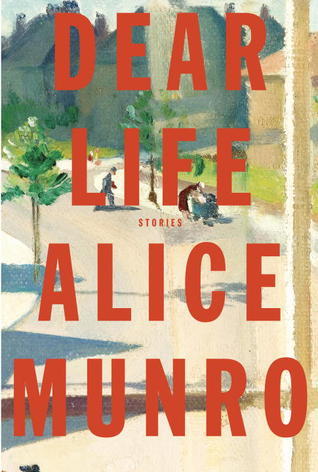
Having recently reread Munro’s first collection of short stories, I was eager to read this, her last. Much is unchanged: the stories are still mostly set in small towns in rural Ontario; many are about women struggling for agency in a conservative culture; and there’s a lot of leaving and returning home.
What has changed is the depth, a willingness to take on even darker themes, and even more complex characters. “Pride” and “Corrie” feature characters with physical disabilities, exploring issues of sexuality, gender, and class. In other stories, such as “Amundsen” and “Haven,” men inhabit their male privilege without apology, leaving the women in their lives to piece out a life from whatever’s left.
Some of the stories explore aging: a character beginning to experience the onset of dementia (“In Sight of the Lake”), a couple choosing where to end their lives (“Dolly”). Other stories are from a child’s viewpoint. “Gravel” in particular is interesting because the first-person narrator seems to be telling the story of loss and memory as a child. Only later do we come to understand that this is a grown woman looking back.
Whatever their ages, Munro’s people exhibit what one reviewer called “bravery, steadiness and stoic grace.”
As an author, my biggest takeaway from this collection—and indeed from Munro’s entire oeuvre—is to trust the reader. I’m one of those people who likes to fix things. An engineer in my day job, I’m always on the alert for a solution, so I still struggle to remember to ask a distraught friend if they want potential solutions (with a risk analysis of each) or a listening ear. As a result, I sometimes find myself explaining too much to forestall a complaint of I don’t get it or Why did the character do that?
Munro seems to have no such qualms. Much is left unexplained in these stories, leaving some people disgruntled, as a glance at Goodreads shows. What she’s really doing is leaving openings for us as readers to bring our own experiences to the table. Like white space in a poem, these openings encourage us to engage with the story. They force us to interpret for ourselves the actions and motivations of her characters.
At times she is more direct: “We say of some things that they can’t be forgiven, or that we will never forgive ourselves. But we do – we do it all the time.”
The story that fascinated me most was “Train,” about a soldier returning from the war who, nearing his destination, jumps off the train and walks away. It reminded me of Anne Tyler’s Ladder of Years which begins with the protagonist simply walking away from her family on a Delaware beach, a scene which has stayed with me for 28 years.
“Jumping off the train was supposed to be a cancellation. You roused your body, readied your knees, to enter a different block of air. You looked forward to emptiness. And instead, what did you get? An immediate flock of new surroundings, asking for your attention in a way they never did when you were sitting on the train and just looking out the window. What are you doing here? Where are you going?”
When you walk away from one life, what do you walk into? I imagined him there, holding on for dear life and then letting go.
The last four pieces are different. She says, “The final four works in this book are not quite stories. They form a separate unit, one that is autobiographical in feeling, though not, sometimes, entirely so in fact. I believe they are the first and last – and the closest – things I have to say about my own life.”
I found them interesting in their own right, seeing the seeds of many stories. As writers, we do take bits of our experience and transform them as only one tessera in the mosaic of a story. We get some hints of her creative process when she describes a neighbour’s house in rural Ontario “… that we would never visit or know and that was to me like a dwarf’s house in a story. But we knew the man who lived there… Roly Grain his name was, and he does not have any further part in what I’m writing now, in spite of his troll’s name, because this is not a story, only life.”
The choice of what four things to write about also intrigued me. They are a reminder that it’s not necessarily the obvious events, like marriage or having a child, that change and shape you. It could be the small, seemingly trivial events that have made you into the person you are. And thus her choice of subject matter over the course of her career comes into focus: the moments that make a life. And thus life itself. “So immense an enchantment.”
If you were to choose four incidents from your early life that most affected who you are today, what would they be?
1 thought on “Dear Life, by Alice Munro”
Comments are closed.